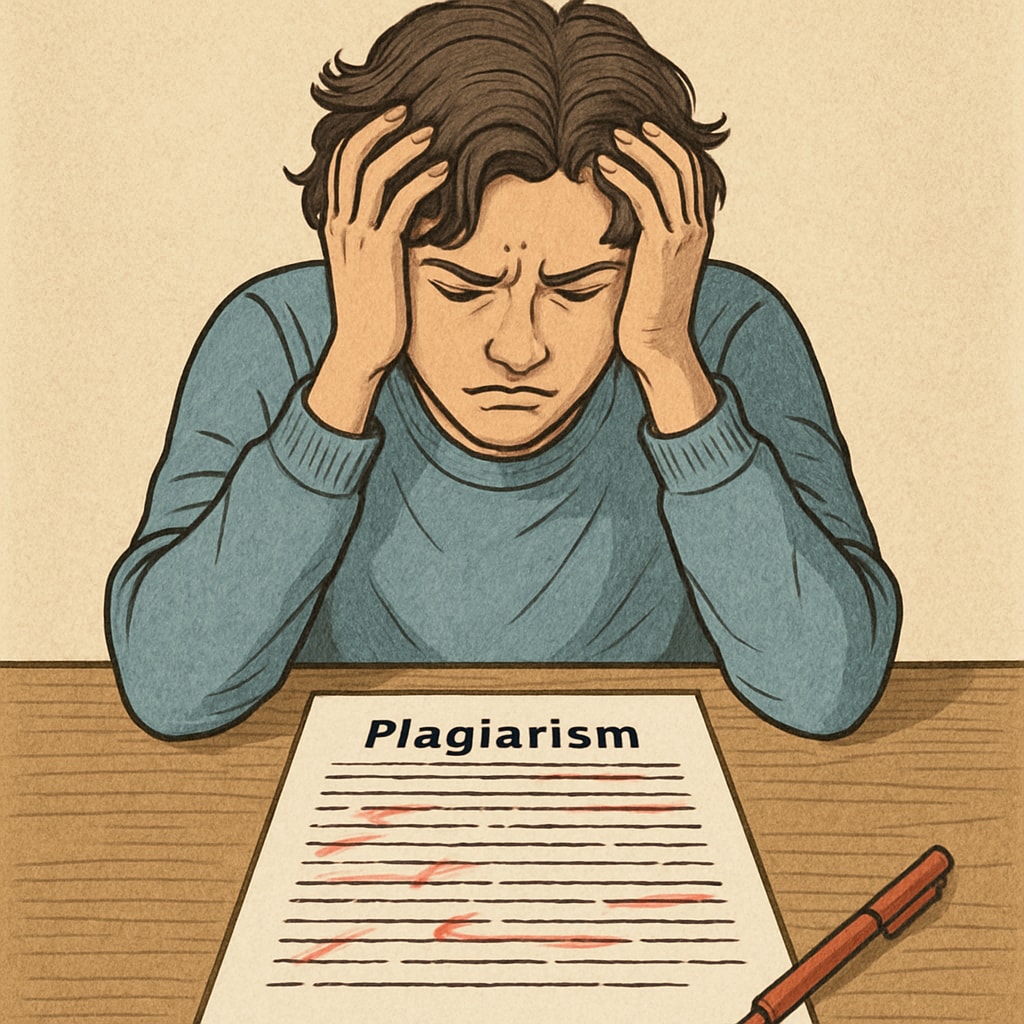Academic integrity is a cornerstone of education, but its implementation can sometimes have unintended consequences. In K12 settings, instances of professors accusing students of plagiarism without sufficient evidence can highlight flaws within the system. Such wrongful accusations can not only harm students’ academic dignity but also affect their psychological development, raising questions about fairness and transparency in evaluating academic work.
The Fragility of Academic Integrity Systems
Academic integrity systems are designed to uphold honesty and fairness in education, but they are not immune to errors. Wrongful plagiarism accusations often result from reliance on automated anti-plagiarism tools or subjective evaluations. While these tools are useful, they can misinterpret creative student work as unoriginal content, leading to false allegations. Additionally, a professor’s personal biases or misjudgments may exacerbate the issue.

For example, a study conducted by Wikipedia highlights how plagiarism detection systems can sometimes flag legitimate citations or coincidental phrasing as copied content. The reliance on such systems without human oversight can undermine students’ ability to express their creativity and originality within their academic work.
The Psychological Impact of Wrongful Accusations
The consequences of wrongful plagiarism accusations often extend far beyond the classroom. Students subjected to false allegations may experience stress, anxiety, and diminished confidence in their abilities. In severe cases, these experiences can lead to long-term psychological harm, particularly for younger learners in K12 education.
For example, a report from Britannica indicates that accusations of academic dishonesty can lead to social stigma among peers, causing students to withdraw from collaborative projects or classroom discussions. This isolation can hinder their learning process and overall development.

Building Transparent and Fair Evaluation Systems
To address the issue of wrongful plagiarism accusations, educational institutions must invest in transparent and fair evaluation systems. These systems should incorporate clear guidelines on what constitutes plagiarism, allowing students to understand and adhere to academic integrity standards. Furthermore, professors should receive training to identify plagiarism accurately and avoid relying solely on automated tools.
- Implement human oversight in plagiarism detection processes.
- Create a clear appeals process for students to challenge wrongful accusations.
- Encourage open dialogue between professors and students to clarify academic expectations.
By adopting these measures, institutions can protect students’ academic dignity while upholding the principles of academic integrity. This approach fosters a culture of trust and mutual respect within educational environments.
Conclusion: Striking a Balance
While academic integrity is essential, it must be pursued with caution and fairness. Wrongful plagiarism accusations by professors can have devastating effects on students, both academically and psychologically. Establishing transparent systems and promoting open communication can help prevent such incidents, ensuring that academic integrity serves as a tool for growth rather than an obstacle.
Ultimately, education should empower students to innovate and express themselves without fear of unjust allegations. By striking the right balance between integrity and fairness, the academic world can nurture a generation of confident, creative learners.


